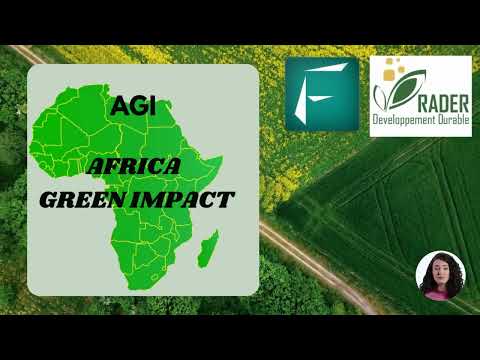Vietnam’s Governance Reforms: Paving the Way for Sustainable Growth and International Cooperation in Southeast Asia
“Vietnam aims to achieve its 2045 economic vision, targeting modernization and digital transformation within the next 22 years.”
In the dynamic landscape of Southeast Asia, Vietnam has emerged as a beacon of progress, steadily advancing its governance reforms and economic development strategies. As we delve into the intricate tapestry of Vietnam’s journey towards sustainable growth and international cooperation, we find ourselves at the crossroads of tradition and innovation, where a nation’s aspirations for the future are deeply rooted in its rich cultural heritage.
At Farmonaut, we recognize the pivotal role that effective governance and sustainable development play in shaping the agricultural sector. While our focus remains on providing cutting-edge satellite-based farm management solutions, we cannot overlook the broader context in which these advancements take place. Vietnam’s governance reforms offer valuable insights into the evolving landscape of Southeast Asian economies and the potential for transformative growth in the region.
The Foundation of Vietnam’s Governance Reforms
The Communist Party of Vietnam (CPV) has been at the forefront of the country’s national renewal process, known as “Doi Moi.” This process, initiated in 1986, has been the driving force behind Vietnam’s transition from a centrally planned economy to a socialist-oriented market economy. The CPV’s strategic reforms aim to enhance governance efficiency, streamline the governmental structure, and optimize policy implementation.
Key aspects of these reforms include:
- Consolidating ministries to reduce redundancies
- Improving inter-agency collaboration
- Constructing a more transparent and effective government
- Combating corruption at all levels of administration
These initiatives are not merely internal adjustments; they lay a robust foundation for enhanced international engagement, particularly as Vietnam emerges as a regional leader and fortifies ties with global partners.
Streamlining Administrative Apparatus: A Path to Efficiency
Vietnam’s commitment to streamlining its government apparatus is a critical element in promoting sustainable development and strengthening governance. This approach involves:
- Reducing bureaucratic layers
- Digitizing administrative processes
- Implementing e-governance solutions
By streamlining administrative procedures, Vietnam aims to create a more agile and responsive government system. This increased efficiency not only benefits citizens but also creates a more attractive environment for foreign investment and international partnerships.
At Farmonaut, we understand the importance of efficiency in agricultural management. Our satellite-based farm management solutions similarly aim to streamline processes for farmers and agribusinesses, aligning with Vietnam’s broader goals of administrative optimization.

Combating Corruption: Building Trust and Accountability
Vietnam’s ongoing fight against corruption is a cornerstone of its governance reforms. The government has implemented several measures to address this issue:
- Strengthening anti-corruption laws and enforcement
- Increasing transparency in government operations
- Encouraging public participation in governance
- Implementing whistleblower protection programs
These efforts are vital for building an accountable government that engenders trust among the public, investors, and international stakeholders. By tackling corruption, Vietnam creates a more favorable investment climate, which is particularly important for partners seeking long-term business relations.
“Vietnam’s governance reforms focus on streamlining administration and combating corruption, potentially impacting 97 million citizens.”
Vietnam’s 2045 Economic Vision: A Blueprint for Modernization
Looking ahead, Vietnam has set forth an ambitious vision for economic modernization, digital transformation, and sustainable development. The country aims to transition to a high-income economy by 2045, emphasizing innovation and human capital development. This modernization strategy involves:
- Pivoting towards high-value industries
- Cultivating a knowledge-driven economy
- Investing in digital infrastructure and skills development
- Promoting sustainable and green economic practices
This forward-looking approach opens doors for international collaboration in sectors such as advanced manufacturing, technology transfer, and sustainable agriculture.
Strengthening Vietnam-Australia Bilateral Relations
The recent signing of the Australia-Vietnam Comprehensive Strategic Partnership in 2024 exemplifies Vietnam’s commitment to fostering strong international ties. This partnership encompasses various areas of cooperation, including:
- Trade and investment
- Defense and security
- Education and cultural exchange
- Climate change and environmental sustainability
The strengthening of Vietnam-Australia relations not only benefits both nations but also contributes to regional stability and prosperity in Southeast Asia.
Table: Vietnam’s Governance Reforms and Economic Vision Comparison
| Area of Focus | Current Status (2023) | 2045 Vision |
|---|---|---|
| Administrative Efficiency | Ongoing streamlining efforts, e-governance initiatives | Fully digitized, agile government system |
| Corruption Index | Improving, but challenges remain | Among top 50 least corrupt countries globally |
| Foreign Investment | Growing, with focus on manufacturing and technology | Major hub for high-tech and sustainable investments |
| Digital Transformation | In progress, with emphasis on e-commerce and fintech | Fully integrated digital economy across all sectors |
| Renewable Energy Adoption | Increasing, with targets for solar and wind energy | Carbon neutral economy, leader in green technology |
| International Partnerships | Growing bilateral and multilateral cooperation | Key player in regional and global economic forums |
Challenges and Opportunities in Vietnam’s Economic Transformation
While Vietnam’s governance reforms and economic vision are ambitious, the country faces several challenges in realizing these goals:
- Economic uncertainties in the global market
- Infrastructure demands for rapid urbanization
- Workforce readiness for a high-tech economy
- Environmental sustainability in the face of climate change
These challenges present opportunities for international cooperation and knowledge exchange. Countries like Australia can play a crucial role in supporting Vietnam’s development through:
- Technology transfer and capacity building
- Sharing best practices in governance and policy implementation
- Collaborative research and development initiatives
- Joint efforts in addressing regional environmental challenges

The Role of Technology in Vietnam’s Sustainable Development
As Vietnam pursues its 2045 economic vision, technology plays a pivotal role in driving sustainable development. The country’s commitment to digital transformation aligns with global trends towards smart cities, Industry 4.0, and precision agriculture.
At Farmonaut, we recognize the transformative power of technology in agriculture. Our satellite-based crop monitoring and AI-driven advisory systems contribute to more efficient and sustainable farming practices. While we are not directly involved in Vietnam’s governance reforms, our technologies align with the country’s goals for modernization and sustainable development in the agricultural sector.
Vietnam’s Commitment to Sustainable Development Goals
Vietnam’s governance reforms and economic vision are closely aligned with the United Nations Sustainable Development Goals (SDGs). The country has made significant strides in areas such as:
- Poverty reduction
- Access to education
- Gender equality
- Clean energy adoption
By integrating SDGs into its national development strategy, Vietnam demonstrates its commitment to balanced and sustainable growth. This approach not only benefits its citizens but also contributes to global efforts in addressing pressing environmental and social challenges.
The Future of Vietnam’s Regional Leadership
As Vietnam continues to implement its governance reforms and pursue its economic vision, the country is poised to play an increasingly important role in Southeast Asian leadership. Its strategic location, growing economy, and proactive approach to international cooperation position Vietnam as a key player in regional affairs.
Vietnam’s leadership potential is evident in its:
- Active participation in ASEAN initiatives
- Mediation efforts in regional disputes
- Promotion of economic integration in Southeast Asia
- Advocacy for collective responses to transnational challenges
As Vietnam strengthens its governance and economic foundations, its influence in shaping regional policies and fostering cooperation is likely to grow significantly.
Opportunities for International Partnerships in Key Sectors
Vietnam’s governance reforms and economic vision create numerous opportunities for international partnerships across various sectors. Some key areas for collaboration include:
- Renewable Energy: Vietnam’s commitment to carbon neutrality by 2050 opens doors for partnerships in green technology and sustainable energy solutions.
- Advanced Manufacturing: As Vietnam aims to move up the value chain, there are opportunities for technology transfer and joint ventures in high-tech manufacturing.
- Education and Skills Development: International partnerships can support Vietnam’s efforts to develop a skilled workforce for its knowledge-based economy.
- Smart Agriculture: Vietnam’s agricultural sector can benefit from international expertise in precision farming and sustainable agricultural practices.
These partnership opportunities align with Vietnam’s goals for sustainable development and economic modernization, creating a win-win scenario for both Vietnam and its international partners.
Conclusion: Vietnam’s Path to Sustainable Growth and Regional Influence
Vietnam’s governance reforms and ambitious economic vision set the stage for transformative growth and enhanced international cooperation in Southeast Asia. By focusing on streamlining administrative processes, combating corruption, and fostering a more transparent and efficient government structure, Vietnam is creating a stable and attractive environment for both domestic and foreign stakeholders.
The country’s 2045 economic vision, emphasizing modernization, digital transformation, and sustainable development, positions Vietnam as a potential leader in the region’s economic future. As Vietnam navigates the challenges and opportunities ahead, its commitment to reform and international cooperation will be crucial in realizing its aspirations and contributing to the broader development of Southeast Asia.
While Farmonaut’s focus remains on providing innovative agricultural solutions, we recognize the importance of these broader economic and governance trends in shaping the future of agriculture and sustainable development in the region. As Vietnam continues its journey of reform and growth, it offers valuable lessons and opportunities for collaboration that can benefit stakeholders across various sectors and geographies.
FAQ Section
- What are the main goals of Vietnam’s governance reforms?
Vietnam’s governance reforms aim to enhance administrative efficiency, combat corruption, streamline government structures, and optimize policy implementation to foster sustainable growth and attract foreign investment. - How does Vietnam’s 2045 economic vision align with sustainable development goals?
Vietnam’s 2045 vision emphasizes modernization, digital transformation, and sustainable development, aligning closely with UN Sustainable Development Goals, particularly in areas of economic growth, innovation, and environmental sustainability. - What role does technology play in Vietnam’s development strategy?
Technology is central to Vietnam’s development strategy, driving digital transformation across sectors, enhancing e-governance, and supporting the transition to a knowledge-based economy. - How is Vietnam strengthening its international partnerships?
Vietnam is fostering international partnerships through comprehensive strategic agreements, such as the recent Australia-Vietnam partnership, focusing on trade, security, education, and environmental collaboration. - What are the main challenges Vietnam faces in implementing its reforms?
Key challenges include managing economic uncertainties, meeting infrastructure demands, preparing the workforce for a high-tech economy, and ensuring environmental sustainability amidst rapid development.
Earn With Farmonaut: Join our affiliate program and earn 20% recurring commission by sharing your promo code and helping farmers save 10%. Onboard 10 Elite farmers monthly to earn a minimum of $148,000 annually—start now and grow your income!






